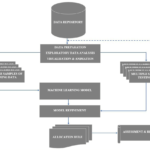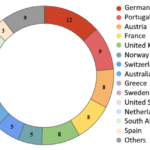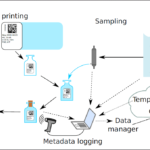
 Title: A Framework for Data-Driven Solutions with COVID-19 Illustrations Title: A Framework for Data-Driven Solutions with COVID-19 IllustrationsAuthor: Kassim S. Mwitondi , Raed A. Said URL: http://doi.org/10.5334/dsj-2021-036 |
|
 Title: Interconnecting Systems Using Machine-Actionable Data Management Plans – Hackathon Report Title: Interconnecting Systems Using Machine-Actionable Data Management Plans – Hackathon ReportAuthor: João Cardoso, Leyla Jael Castro, Tomasz Miksa URL: http://doi.org/10.5334/ds,j-2021-035 |
|
 Title: Keeping Track of Samples in Multidisciplinary Fieldwork Title: Keeping Track of Samples in Multidisciplinary FieldworkAuthor: Pål Gunnar Ellingsen, Lara Ferrighi, Øystein Godøy, Tove Margrethe Gabrielsen URL: http://doi.org/10.5334/ds,j-2021-034 |







